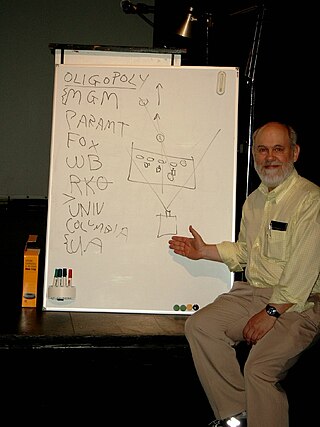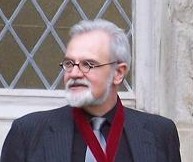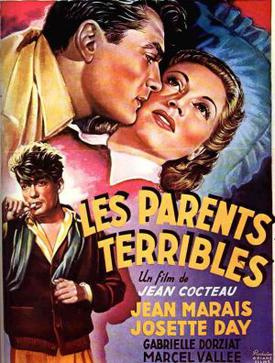The philosophy of film is a branch of aesthetics within the discipline of philosophy that seeks to understand the most basic questions about film. Philosophy of film has significant overlap with film theory, a branch of film studies. [1] [2]
The earliest person to explore philosophical questions regarding film was Hugo Münsterberg. During the so-called silent film era, he sought to understand what it was about film that made it conceptually distinct from theater. He concluded that the use of close-ups, flash-backs, and edits were unique to film and constituted its nature.
Rudolf Arnheim, with the beginning of the era of synchronized sound for film, argued that earlier films were aesthetically superior to the "talkies". He held that by adding technologically synchronized sound to replace previous live-accompaniment of otherwise silent moving images, the unique status of film had been removed. Instead of being a unique art form that could carefully study bodies in motion, film had become merely a combination of two other art forms.
André Bazin, contrary to Arnheim, held that whether or not a film has sound is largely irrelevant. He believed that film, due mainly to its foundation in and relationship with photography, had a realist aspect to it. He argued that film has the ability to capture the real world. American philosopher Noël Carroll has argued that the earlier characterizations of film made by philosophers too narrowly defined the nature of film and that they incorrectly conflated aspects of genres of films with film in general.
Aspects of Bazin's realist theories have been accepted by philosophers in spite of Carroll's critique. The transparency thesis, which says that film is a medium transparent to true reality, has been accepted by Kendall Walton.
The film Waking Life also features a discussion of the philosophy of film where the theories of Bazin are emphasized. [3] In it, the character waxes philosophic that every moment of film is capturing an aspect of God. [4]
Film theory is a set of scholarly approaches within the academic discipline of film or cinema studies that began in the 1920s by questioning the formal essential attributes of motion pictures; and that now provides conceptual frameworks for understanding film's relationship to reality, the other arts, individual viewers, and society at large. Film theory is not to be confused with general film criticism, or film history, though these three disciplines interrelate.

Emmanuel Levinas was a French philosopher of Lithuanian Jewish ancestry who is known for his work within Jewish philosophy, existentialism, and phenomenology, focusing on the relationship of ethics to metaphysics and ontology.

André Bazin was a renowned and influential French film critic and film theorist.
Scientific realism is the view that the universe described by science is real regardless of how it may be interpreted.
Ram Roy Bhaskar (1944–2014) was an English philosopher of science who is best known as the initiator of the philosophical movement of critical realism (CR). Bhaskar argued that the task of science is "the production of the knowledge of those enduring and continually active mechanisms of nature that produce the phenomena of the world", rather than the discovery of quantitative laws, and that experimental science makes sense only if such mechanisms exist and operate outside the lab as well as inside it. He went on to apply that realism about mechanisms and causal powers to the philosophy of social science, and he also elaborated a series of arguments to support the critical role of philosophy and the human sciences. According to Bhaskar, it is possible and desirable for the study of society to be scientific.

Film studies is an academic discipline that deals with various theoretical, historical, and critical approaches to cinema as an art form and a medium. It is sometimes subsumed within media studies and is often compared to television studies.
Philosophical realism is usually not treated as a position of its own but as a stance towards other subject matters. Realism about a certain kind of thing is the thesis that this kind of thing has mind-independent existence, i.e. that it is not just a mere appearance in the eye of the beholder. This includes a number of positions within epistemology and metaphysics which express that a given thing instead exists independently of knowledge, thought, or understanding. This can apply to items such as the physical world, the past and future, other minds, and the self, though may also apply less directly to things such as universals, mathematical truths, moral truths, and thought itself. However, realism may also include various positions which instead reject metaphysical treatments of reality entirely.

David Jay Bordwell is an American film theorist and film historian. Since receiving his PhD from the University of Iowa in 1974, he has written more than fifteen volumes on the subject of cinema including Narration in the Fiction Film (1985), Ozu and the Poetics of Cinema (1988), Making Meaning (1989), and On the History of Film Style (1997).
Quentin Meillassoux is a French philosopher. He teaches at the Université Paris 1 Panthéon-Sorbonne.

Noël Carroll is an American philosopher considered to be one of the leading figures in contemporary philosophy of art. Although Carroll is best known for his work in the philosophy of film, he has also published journalism, works on philosophy of art generally, theory of media, and also philosophy of history. As of 2012, he is a distinguished professor of philosophy at the CUNY Graduate Center.

Les Parents terribles is a 1948 film adaptation directed by Jean Cocteau from his own stage play Les Parents terribles. Cocteau used the same cast who had appeared in a successful stage revival of the play in Paris in 1946. The film has sometimes been known by the English title The Storm Within.
Linguistic film theory is a form of film theory that studies the aesthetics of films by investigating the concepts and practices that comprise the experience and interpretation of movies.

Xavier Dolan-Tadros is a Canadian filmmaker, actor and costume designer. He began his career as a child actor in commercials before directing several arthouse feature films. He first received international acclaim in 2009 for his feature film directorial debut, I Killed My Mother, which he also starred in, wrote, and produced, and which premiered at the 62nd Cannes Film Festival in the Directors' Fortnight section and won three awards from the program.
In the philosophy of science, structuralism asserts that all aspects of reality are best understood in terms of empirical scientific constructs of entities and their relations, rather than in terms of concrete entities in themselves.

Critical realism is a philosophical approach to understanding science, and in particular social science, initially developed by Roy Bhaskar (1944–2014). It specifically opposes forms of empiricism and positivism by viewing science as concerned with identifying causal mechanisms. In the last decades of the twentieth century it also stood against various forms of postmodernism and poststructuralism by insisting on the reality of objective existence. In contrast to positivism's methodological foundation, and poststructuralism's epistemological foundation, critical realism insists that (social) science should be built from an explicit ontology. Critical realism is one of a range of types of philosophical realism, as well as forms of realism advocated within social science such as analytic realism and subtle realism.
Berys Gaut is an author and Professor of Philosophy at the University of St Andrews. He writes on aesthetics, creativity, philosophy of film, and ethics. He was president of the British Society of Aesthetics until 2018.
Murray Smith is a film theorist and philosopher of art based at the University of Kent, where he is Professor of Film and co-director of the Aesthetics Research Centre. He is the author of three books and numerous articles on film and aesthetics, and the co-editor of three collections of essays. He was President of the Society for Cognitive Studies of the Moving Image from 2014-17, and has served on the editorial boards of Screen, Cinema Journal, the British Journal of Aesthetics, Projections and Series. He has held a Leverhulme Research Fellowship (2005-6), and a Laurance S Rockefeller Fellowship at Princeton University’s Centre for Human Values (2017-18). He delivered a Kracauer Lecture in 2014 at the Goethe University Frankfurt, the inaugural Beacon Institute lecture in 2015, and the Beardsley Lecture in 2018, sponsored by Temple University at the Barnes Foundation.
Cynthia A. Freeland is an American philosopher of art. She has published three monographs, over two dozen articles, and edited several books. She is Emeritus professor of philosophy at the University of Houston. She was the president of the American Society of Aesthetics until 2017. She has been awarded a fellowship from the National Endowment for the Humanities in 2003 for a research project on Fakes and Forgeries. Her book But is it Art? (2001) has been translated into fourteen languages and was republished as part of the Oxford Very Short Introductions series. She talked about her book Portraits&Persons with Nigel Warburton on the Philosophy Bites podcast. She was interviewed by Hans Maes for the book Conversations on Art and Aesthetics (2017) which includes a photograph of her by American photographer Steve Pyke.

Medium essentialism is a philosophical theory stating that each artform has its own distinctive medium, and that the essence of such an artform is dependent on its particular medium. In practice, the theory argues that every artwork should manifest its essential properties, those which no other artform can employ. The theory relies on the presumption that every artform has a unique medium, and is divided into two main interpretations. The ‘limitation’ interpretation of medium essentialism argues that, due to their medium, some artforms should be constrained in their aspirations. The ‘productive’ interpretation reasons that a work's medium determines what content or style will function best, and that practitioners should pursue ventures aligning with the nature of this chosen medium. Clement Greenberg is a prolific medium-essentialist in relation to modernist art, proposing that artists such as Jackson Pollock are successful because they properly exploit elements of their chosen medium, such as a painting's physical flatness. However, medium essentialism was most propagated by film practitioners throughout the twentieth century, as it legitimised cinema as an artform for the first time. Previously, film had been regarded as merely a recorded representation of a written play. It is therefore most discussed today by film theorists, stemming from the work of critics such as André Bazin. Regardless of the interpretation favoured, what constitutes a film's medium, and therefore essential meaning, has been heavily debated, and has prompted the creation of several sub-theories. The theory has been widely discussed among contemporary film theorists and has featured in the Anthology of the Philosophy of Film and Motion Pictures.
Kid Sentiment is a Canadian docufiction film, directed by Jacques Godbout and released in 1968. Mixing fiction with documentary in the direct cinema style and working with a cast of non-professional actors, the film depicts 1960s youth culture through a narrative fiction story about four teenagers in Quebec City mixed with segments in which Godbout directly interviews the actors about their goals, values and philosophies of life.